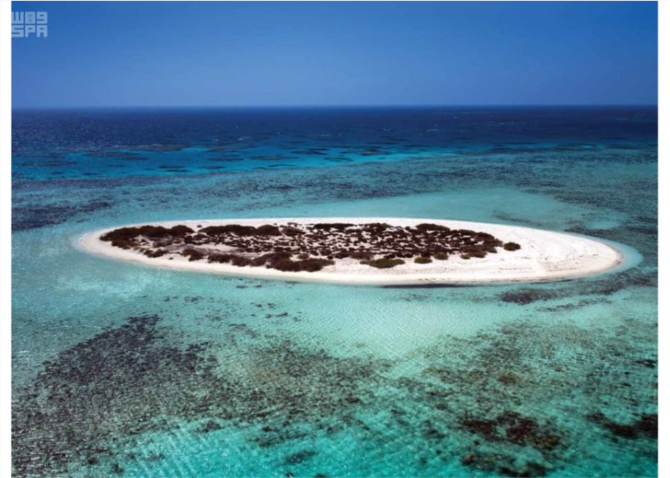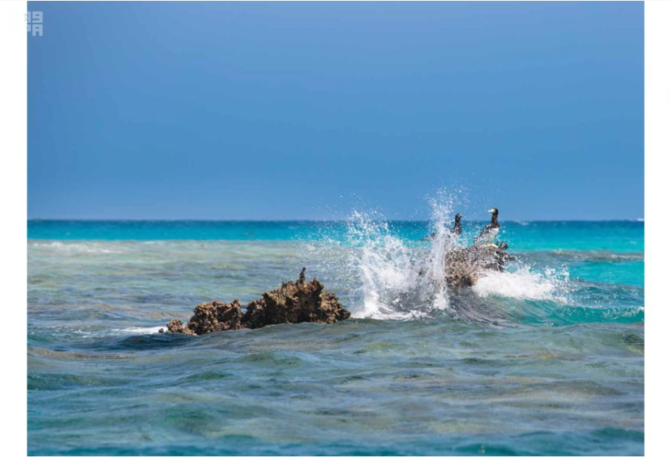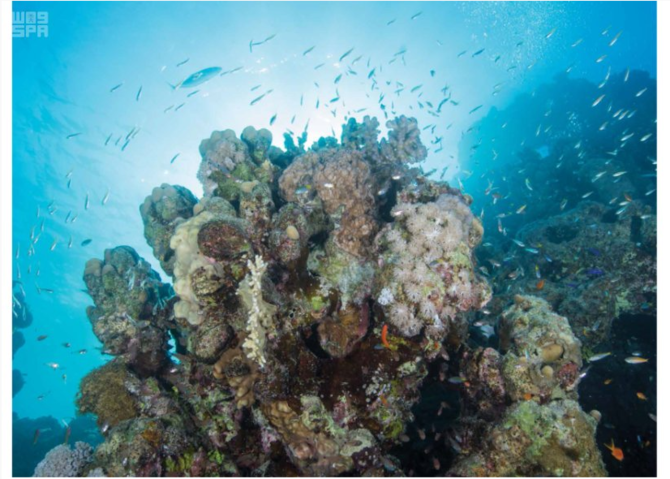JEDDAH: Crown Prince Mohammed bin Salman, chairman of the Public Investment Fund (PIF), on Tuesday announced the launch of an international tourism project in the Kingdom called The Red Sea.
Envisioned as a resort built across a lagoon of 50 untouched islands, The Red Sea will be situated in one of the world’s last natural hidden treasures, between the cities of Umlaj and Al-Wajh. It will be developed in partnership with the world’s leading hospitality firms.
Situated just a few kilometers from one of the most diverse Saudi nature reserves and captivating dormant volcanoes in Harrat Al-Rahat, the resort promises to be a blissful coastal island retreat set against a backdrop of the ancient ruins at Mada’in Saleh, renowned for its beauty and historical significance.
Visitors will be able to explore hidden treasures, including a nature reserve that boasts a stunning diversity of flora and fauna at the foothills of the dormant volcano nearby.
An array of marine-oriented resort developments will allow for unparalleled scuba diving among stunning coral reefs. The project will form an archipelago that is home to environmentally protected coral reefs, mangroves and several endangered marine species, including the hawksbill sea turtle.
It will also boast dormant volcanoes, the most recently active of which has a recorded history of activity dating back to the 17th century AD.
The project’s nature reserve is inhabited by rare wildlife including leopards, wolves, wildcats and falcons. Also on offer will be parachuting, trekking and rock climbing.
With tourism representing the second most important sector in the Kingdom, The Red Sea will spearhead the diversification of the Saudi leisure industry.
#TheRedSeaProject promises you an unforgettable experience.
Catch a glimpse at this video pic.twitter.com/XGVNM991w7— مشروع البحر الأحمر (@TheRedSeaSA) August 1, 2017
In line with Vision 2030, it will diversify Saudi tourism offerings to create a year-round hospitality sector while promoting cultural conservation and economic stimulation.
The Red Sea will serve as a wellness center while setting new standards for sustainable development and environmental protection, which will be central to the project’s development.
To ensure the highest standard of environmental conservation, the number of visitors annually will be capped and heritage sites will be restored.
Laws on par with international standards will govern the newly mapped semi-autonomous area, with initial groundbreaking expected in the third quarter of 2019.
Completion of the project’s first phase is anticipated by the last quarter of 2022, which will include development of hotels, luxury residential units and all logistical infrastructure such as air, land and sea transport hubs.
The project will be developed with seed capital from the PIF, while partnerships with top-tier international companies will be formed.
This will attract the world’s leading names in hotel and tourism operations while contributing to Saudi economic growth. The project aims to generate SR15 billion ($4 billion) annually to the Saudi economy and create 35,000 jobs.
A Saudi world class tourism destination #TheRedSeaProject pic.twitter.com/Bd2XInQnQB
— مشروع البحر الأحمر (@TheRedSeaSA) August 1, 2017





























